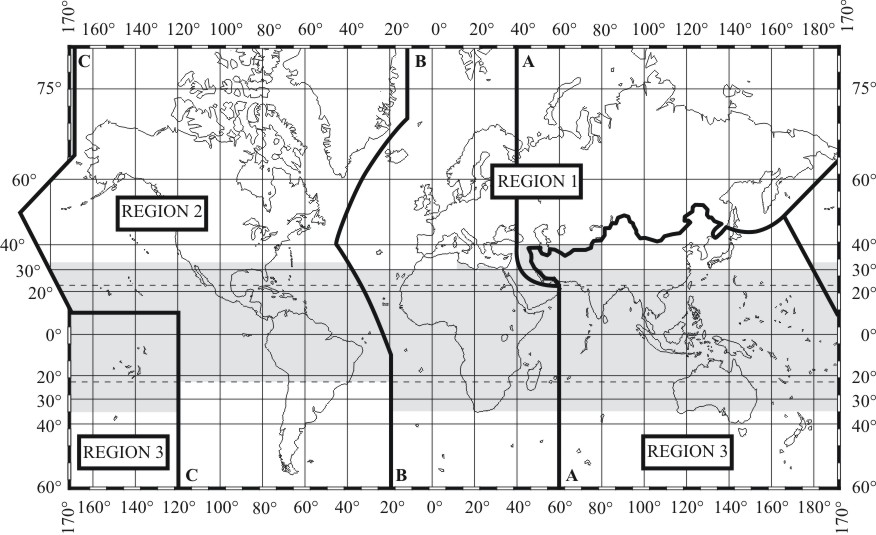ITU To Mark June 17 Analog-to-Digital Transition with Symposium
GENEVA—On June 17, 2015, all countries in the ITU Region 1 (Europe, Africa, the Middle East and Central Asia, including Iran), will transition from analog to digital broadcasting. To mark the occasion, ITU will host a symposium at its headquarters in Geneva to highlight the inherent advantages offered by digital terrestrial broadcasting today and in the future.

ITU Region 1 includes countries in Europe, Africa, the Middle East and Central Asia.
The June 17 deadline for switching off analog television broadcasting in the UHF band was set by ITU Member States at the Regional Radiocommunication Conference in 2006, known as the GE06 Regional Agreement.
For its "International Symposium for the Digital Switchover," ITU has invited experts from around the world to examine the objectives of the transition from analog to digital broadcasting and take a look at advances in television, such as ultra-high-definition TV (UHDTV), Integrated broadcast-broadband (IBB) systems, and smart TV platforms as well as building a sustainable ecosystem for digital TV in the future and its spectrum requirements. New technologies related to digital broadcasting, including UHDTV, hybrid HbbTV, extended image dynamic range, higher frame rates, and immersive audio, will be demonstrated by leading developers and experts from the BBC, EBU, Dolby, Fraunhofer and others.
ITU cites the many advantages of digital broadcasting over analog, including an increase in the number of available channels, as well as the ability to provide new innovative services, such as interactive TV, electronic program guides and mobile TV as well as transmit image and sound in HD and ultra-HD. Digital TV requires less energy to ensure the same coverage as for analog while decreasing overall costs of transmission. The more efficient use of radio spectrum brought on by digital TV also allows for the so-called digital dividend resulting from the freeing up of spectrum for use by other services, such as mobile broadband, according to the ITU.
Several countries that are parties to the GE06 Agreement, as well as many who are not, have already made the transition; others are in the process. (For a list of countries that have completed the transition, visit here.)
“As the specialized agency of the United Nations dealing with information and communication technologies, including spectrum and satellite orbit issues, ITU will keep supporting the development of new technologies,” said ITU Secretary-General Houlin Zhao. “I congratulate administrations around the world which have successively switched to digital television broadcasting and I also wish all success to those still in the process of doing so.”
Get the TV Tech Newsletter
The professional video industry's #1 source for news, trends and product and tech information. Sign up below.
For more information on the symposium, visit ITU International Symposium for the Digital Switchover
Tom has covered the broadcast technology market for the past 25 years, including three years handling member communications for the National Association of Broadcasters followed by a year as editor of Video Technology News and DTV Business executive newsletters for Phillips Publishing. In 1999 he launched digitalbroadcasting.com for internet B2B portal Verticalnet. He is also a charter member of the CTA's Academy of Digital TV Pioneers. Since 2001, he has been editor-in-chief of TV Tech (www.tvtech.com), the leading source of news and information on broadcast and related media technology and is a frequent contributor and moderator to the brand’s Tech Leadership events.

